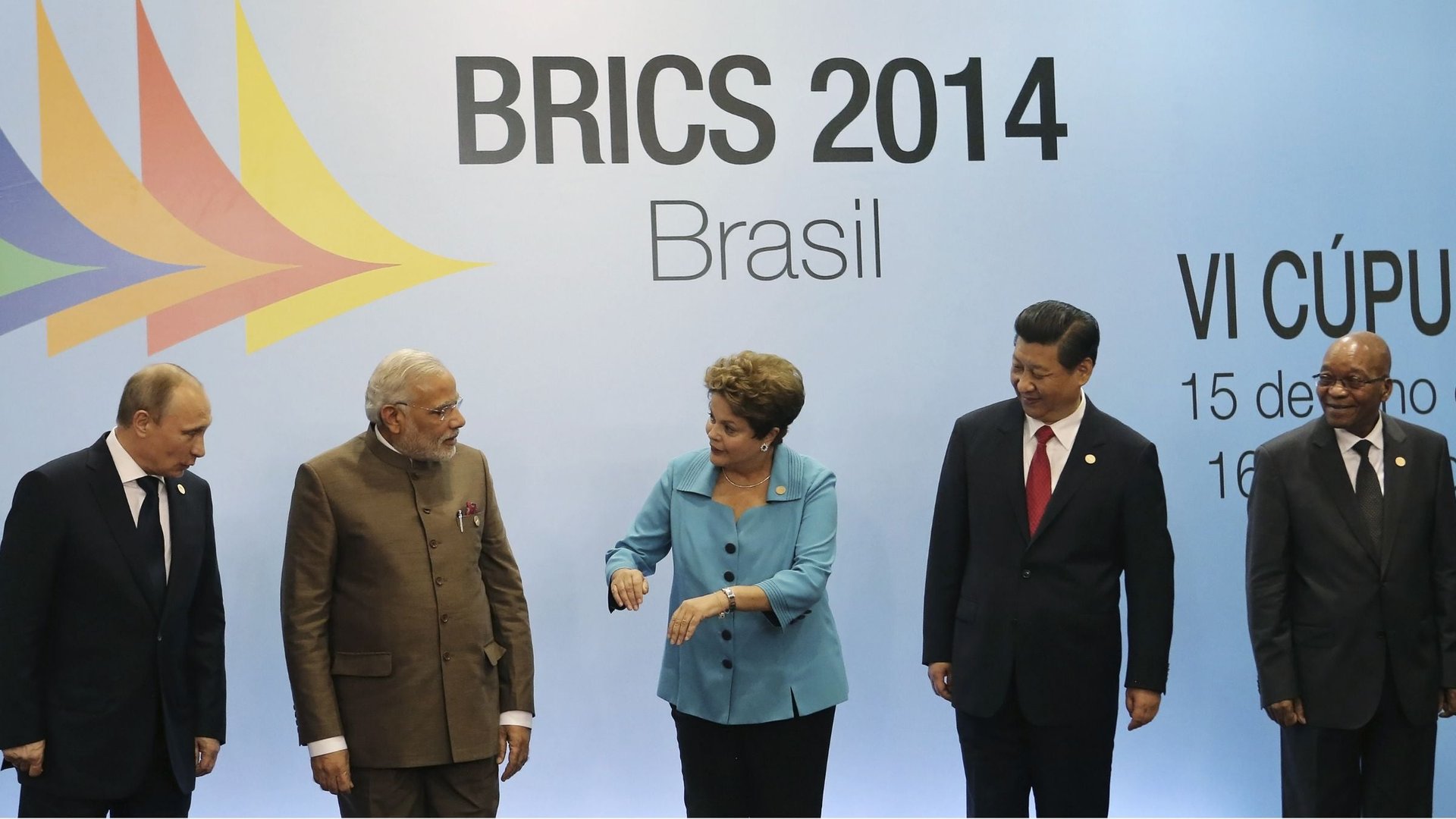How to start a bank and let each of the BRICS be in charge
It’s not easy to bring five world leaders together, get them to negotiate a landmark deal and have them all leave happily.


It’s not easy to bring five world leaders together, get them to negotiate a landmark deal and have them all leave happily.
But something like that may have just happened in Fortaleza, Brazil.
Leaders of the BRICS—Brazil, Russia, India, China and South Africa—met for their sixth summit, and hammered out an agreement to establish a new development bank.
The New Development Bank (NDB), as it’ll be known, is being pitched as an alternative to the World Bank and IMF, mostly because the two Bretton Woods institutions remain dominated by western powers.
In the run-up to the summit—incidentally, Indian prime minister Narendra Modi’s first multilateral engagement—the question was whether China and India would be able to bridge their differences.
A major point of contention was reportedly the location of the bank’s headquarters. While China, led by president Xi Jinping, was pushing for Shanghai, India wanted New Delhi.
In the end, China won. The bank will be based in Shanghai.
But India did get a small victory: The first president of the bank will be an Indian. There will also be at least one vice-president from each of the other founding member countries.
Here are some other details from the agreement:
- The NDB’s objective is to mobilize resources for infrastructure and other projects within BRICS and emerging economies
- The bank will have an initial authorized capital of $100 billion, with an initial subscribed capital of $50 billion, equally shared by all BRICS members
- The first chair of the board of governors will be Russian, while the first chair of the board of directors will be from Brazil
- There will also be an NDB Africa Regional Center established in South Africa
- Membership will be open to other members of the United Nations
Effectively, the BRICS have tried to spread things evenly.
But with three strong-minded leaders in charge of the three large economies within the bloc—Russia’s Vladimir Putin, Xi, and Modi—tussles over control are to be expected.
And while China’s outsized economic clout didn’t show through in the formation of the NDB, Beijing is giving more than others set-up a BRICS Contingent Reserve Arrangement (CRA). Also finalized in Fortaleza, the CRA is aimed at helping BRICS countries with liquidity issues and short-term balance of payments pressures.
Of the $100 billion CRA, China will put in $41 billion, with Brazil, Russia and India each contributing $18 billion, and South Africa pitching in with $5 billion.
Even within the BRICS, sometimes there is a first among equals.